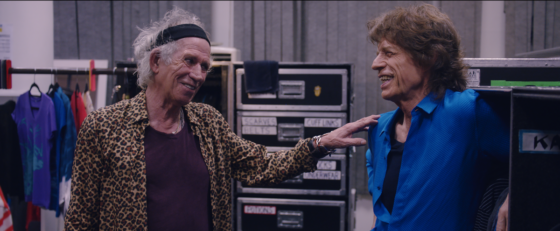The Rolling Stones Olé Olé Olé! A Trip Across Latin America (Paul Dugdale, UK) — Gala Presentations
By Robert Koehler
Robert Frank’s Cocksucker Blues (1973) remains the gnarliest rock-band tour movie ever made, and the best Stones movie too. Watching the new Stones tour movie, The Rolling Stones Olé Olé Olé!, will recall Frank’s movie for all the ways in which the band has changed. Once profane and on the verge of self-combustion (as Frank captures with unbridled intensity), the band has since been a well-oiled machine regularly revived by four guys who still like hanging out with each other. That’s partly what this tour recording, effectively a feature-length ad for the group, is about.
The other part is more interesting. The tour confirms that the band still represents genuine revolt and cultural shifts for large swathes of Latin America, where the Stones (and the rest of rock) were banned during much of the ’60s, ’70s and ’80s. After the legendary Avandaro festival in 1971, when the Stones drew a Mexico City crowd of 500,000, the Mexican government banned rock music for the next 14 years. The music was taboo in all Latin American military dictatorships, as well as Cuba, where possession of a pop recording would send you to the labour camps, or worse. North Americans take for granted how culturally repressed life was for most Latin Americans during rock’s most fecund era.
So, Olé Olé Olé! is about a cultural catch-up, capped with the band hitting Havana for the first major rock concert in the Castro era. The nine-city tour, which went down earlier this year, saw the lads wowing massive crowds in Santiago, Buenos Aires, Montevideo, Rio, Sao Paulo, Lima, Mexico City and Havana, and despite the cushiness of life on the road in a string of six-star hotels, Mick and Keith in particular evince an authentic sense of the blues (and fun) that reaffirms them as the definitive rock unit.
Robert Koehler


